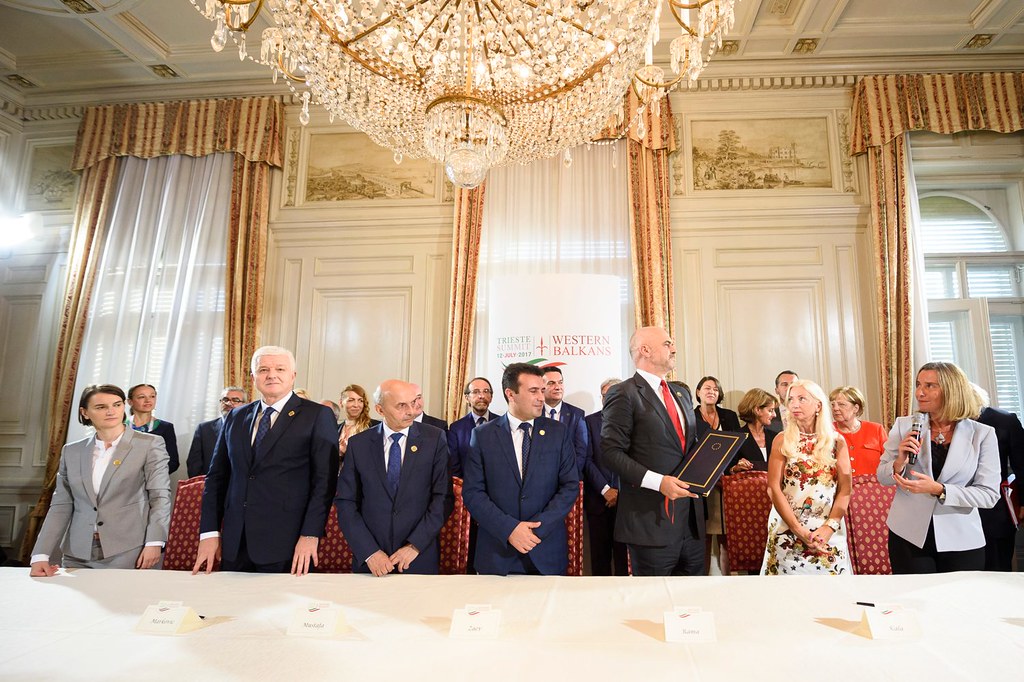Aleksandra Čavoški (University of Birmingham)
The UK’s relationship with the enlargement of the European Union was always ambivalent. The UK was initially a strong proponent of EU enlargement, particularly in the 1990s. Being opposed to furthering political union in the EU, the UK regarded enlargement as a way of preventing deepening integration and federalism. With the accession of new member states in 2004, the then Labour government decided to open the UK’s labour market to workers from the new member states, mainly Central and Eastern European countries. The subsequent migration, coupled with a growing anti-European sentiment in the governing Conservative party, gradually brought change to the UK’s position on enlargement. Not surprisingly, these anti-European and anti-immigration sentiments became one of the leading themes of alarmist campaigning by the leave campaign in the Brexit referendum.
Following the decision of the UK electorate to leave in the referendum held in June 2016, the EU’s attention was immediately diverted from its ‘business as usual’ to ensuring the smooth exit of one of the largest member states. To that end, the EU deployed significant capital and resources to negotiations with the UK, which from the outset proved to be very complex and highly politicised. Though it would be impossible to assess the opportunity cost of these negotiations, the substantial time and energy devoted to them meant that the EU had to divert its efforts from other areas of interest, such as enlargement. Thus, it was not surprising when in the 2017 State of Union Speech, Jean-Claude Juncker who was the President of the Commission at the time, stated that there would be no future enlargement during the term of office of the incumbent Commission.
Against the context of the refugee and Eurozone crises, at the time of the referendum, Brexit was seen as yet another destabilising factor for the Union. The EU was thus keen to reaffirm its authority among member states as well as to emphasise the importance of the EU project. This sense of urgency can be seen in the 2016 Bratislava Declaration where the EU leaders emphasized the critical time for the European project and the need to “diagnose together the present state of the European Union and discuss our common future” (2016 Bratislava Declaration at p. 1). Moreover, the EU wanted to make sure that negotiations with the UK would openly expose the advantages of EU membership and would discourage any member states contemplating leaving.
Despite the gloomy scenarios about the future of the EU post-Brexit, the EU quickly consolidated its ranks and came out of negotiations leading to the Withdrawal Agreement even stronger, demonstrating the unity of all member states during negotiations with the UK. Equally, the EU still remains highly attractive to accession countries. However, it is not coincidental that the only real attention paid to enlargement began in 2020 after the Withdrawal Agreement with the UK was concluded. The consequences of the EU’s lack of attention to enlargement became obvious once this agreement was concluded. While the EU was busy negotiating complex and obscure details of the Withdrawal Agreement, other powers were filling the political vacuum in the Western Balkan accession countries, in particular in Serbia. The region has seen major Chinese investments in infrastructure and greater Russian political influence. This important post-Brexit realisation was key for the EU to acknowledge that further enlargement still remains one of its most important strategic imperatives
However, deciding how to act proved to be an initial impediment. The EU was torn between the need to engage swiftly with the Western Balkan region to fill this political space and its realisation that old fashioned EU conditionality is not positively changing behaviours of accession counties. Furthermore, members such as Hungary and Poland were disregarding what many member states consider to be basic European norms. Macron’s calls for reforming the enlargement policy was an open acknowledgement that the current enlargement process is not working. There was a strong sentiment among member states that successive rounds of annual progress reports have not brought fundamental political, economic and legal changes in the accession countries. Though it was initially expected that any new reform will take a long time, the EU moved quickly and adopted the revised enlargement methodology that would allow for ‘a more credible process’, ‘a stronger political steer’, ‘a more dynamic process’ and a more ‘predictable process’ (COM(2020) 57 final). This demonstrated a realisation that the strategic imperative of projecting the EU’s interests was more important than the process and methodology of enlargement.
To what extent Brexit informed this new enlargement strategy is difficult to assess. Despite initial concerns that Brexit exposed the fragility of the EU project, the EU is re-focused and ready to engage with the Western Balkans as an important geopolitical region. The EU made clear that any further enlargement needs to be based on a sound merit-based process which is a sign that conditionality for accession countries will become tougher requiring more profound changes, especially in core policy areas. Equally, this new conditionality requires a greater engagement of EU member states in the accession process through monitoring and expert advice. The hope is that this may remedy some of anti-European sentiment created by Brexit and ensure greater unity among member states regarding enlargement. The ultimate aim is to enable the accession of those countries who have the capability to assume membership but also share common values underpinning the European project.
The views expressed in this article reflect the position of the author and not necessarily the one of the Brexit Institute Blog
Aleksandra Čavoški is a Senior Lecturer at the Birmingham Law School
Photo credit: “Participation of the former EU High Representative Federica Mogherini to the Western Balkans Summit in Trieste, July 2017” by European External Action Service – EEAS is licensed under CC BY-NC 2.0



